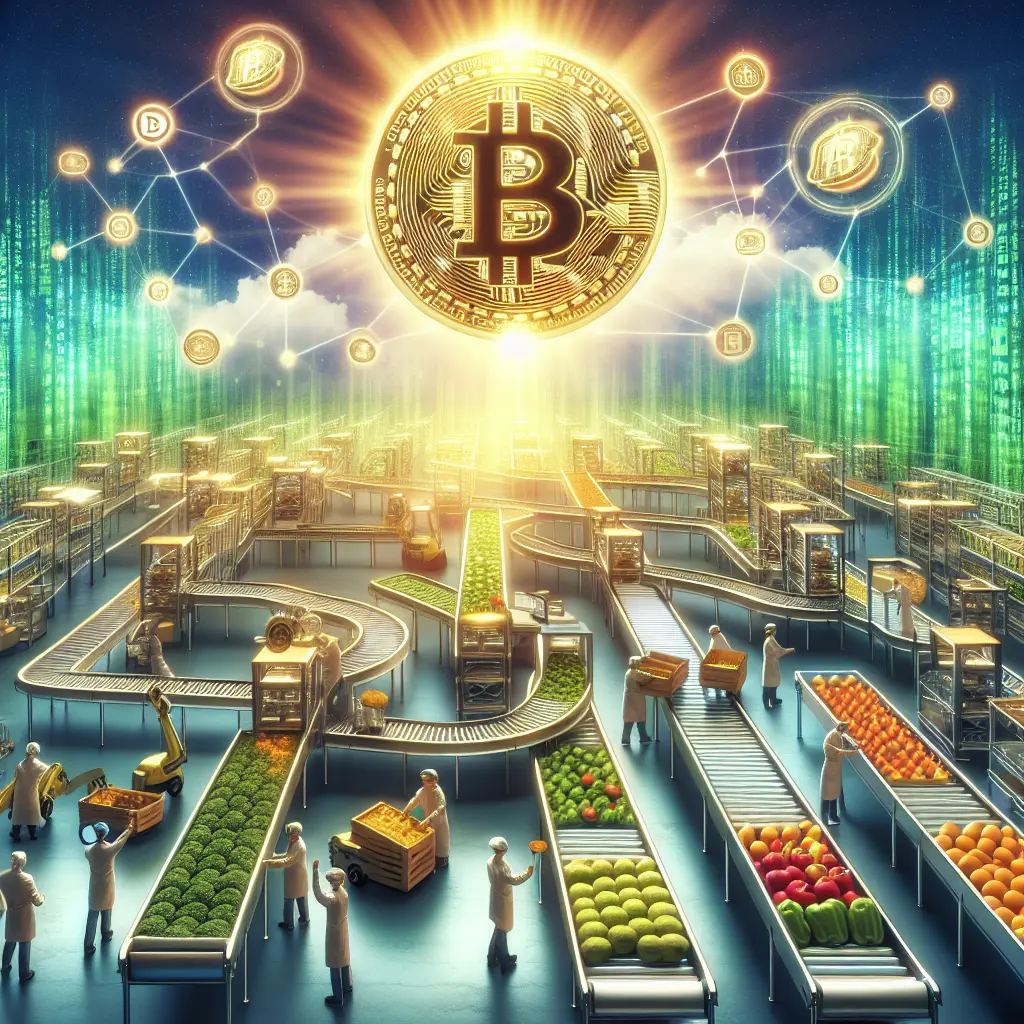In a world where innovation and sustainability are more critical than ever, Bitcoin is emerging as a transformative force in the food supply chain. This digital currency is not just reshaping traditional finance but also revolutionizing how food travels from farm to table. With blockchain technology, Bitcoin agriculture is paving the way for enhanced transparency and efficiency in food supply chain management. As the cryptocurrency food logistics sector grows, it enables unprecedented traceability in agriculture, ensuring that consumers can trust the journey of their food.
The integration of Bitcoin in farm-to-table initiatives highlights its potential to decentralize the food supply chain, fostering an environment where local farmers can thrive and sustainable farming practices are prioritized. As the demand for organic produce rises, Bitcoin-driven food innovation is leading to breakthroughs in organic farming and food safety. Blockchain technology is pivotal in the agriculture industry, offering food quality assurance and transparent sourcing that were once thought unattainable.
Bitcoin's impact on agriculture extends globally, influencing the dynamics of food production and distribution. From enhancing food safety protocols to promoting sustainable farming methods, this digital currency is set to redefine the future of food. As the world embraces this shift, Bitcoin's role in global food trade becomes increasingly significant, ushering in a new era of digital currency's influence on the food supply.
In recent years, Bitcoin has made significant strides in revolutionizing the food supply chain, a sector that historically relies on traditional and often opaque methods of operation. The integration of blockchain technology, underpinning Bitcoin, brings transparency, efficiency, and security to the forefront, transforming how food is sourced, traced, and delivered from farm to table.
The blockchain technology that supports Bitcoin is pivotal in creating a transparent food supply chain. This technology ensures that every transaction is recorded on an immutable ledger, providing comprehensive traceability. For instance, consumers can now verify the journey of their food, from its origins on a farm to the supermarket shelves, enhancing trust in the products they purchase.
Bitcoin's Role in Revolutionizing the Food Supply Chain
A recent case study involving Walmart's partnership with IBM demonstrated how blockchain could be utilized to track the supply chain of leafy greens. By using a blockchain-based system, they reduced the time it took to trace a product from days to mere seconds. This efficiency not only bolsters consumer confidence but also enhances food safety by allowing quicker responses to potential contamination issues.
One of the most profound impacts of Bitcoin on the food supply chain is its ability to decentralize processes. By cutting out intermediaries, local farmers can engage directly with consumers or retailers. This decentralization empowers small-scale farmers and encourages sustainable farming practices.
Consider the example of AgriDigital, which leverages blockchain technology to provide farmers with immediate payment upon delivery of produce, reducing financial strain and reliance on traditional banking systems. Such innovations demonstrate how Bitcoin agriculture supports local economies by ensuring farmers are paid fairly and promptly.
Bitcoin-driven food innovation is significantly contributing to advancements in organic farming. As demand for organic produce rises, blockchain technology aids in maintaining stringent quality standards and transparent sourcing. By verifying the authenticity of organic claims through blockchain, consumers are assured of the product's integrity.
Enhancing Transparency and Traceability
A report from TechCrunch highlights how blockchain is used to document every stage of organic farming processes, ensuring compliance with organic standards. This transparency not only supports consumer trust but also encourages more farmers to adopt organic methods, knowing they can effectively market their produce as genuine.
Food safety is paramount in the agriculture industry, and Bitcoin plays a crucial role in enhancing these protocols. By utilizing blockchain, stakeholders can access real-time data about food products, enabling them to address safety concerns promptly.
A noteworthy example is the collaboration between Nestlé and IBM, which integrates blockchain into their supply chain to improve food safety measures. This initiative allows Nestlé to trace ingredients back to their source swiftly and accurately, significantly reducing the risk of distributing contaminated products.
Bitcoin's influence extends to promoting sustainable farming practices. By offering financial incentives through cryptocurrencies and ensuring transparent tracking of carbon footprints, blockchain encourages farmers to adopt eco-friendly methods.
The Sustainable Agriculture Initiative Platform reports that blockchain-based solutions help monitor and report sustainability metrics effectively, motivating farmers to minimize environmental impact while enhancing productivity.










Leave a Comment